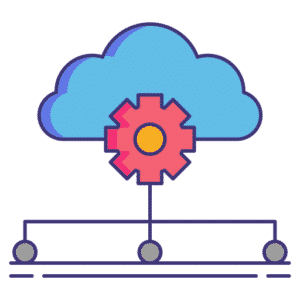How to Become HIPAA Compliant
as a SaaS Provider
as a SaaS Provider
Business associates (BAs) offering Software-as-a-Service (SaaS) should look to healthcare as a new vertical. Healthcare organizations represent approximately 20% of the United States’ economy. The Health Insurance Portability and Accountability Act (HIPAA) established industry standards for how protected health information (PHI) should be handled. To become HIPAA Compliant, healthcare organizations and the vendors that service them need to have safeguards in place, such as a reliable, web-based compliance software or system, to secure PHI. PHI is any personally identifiable health information such as name, date of birth, treatment information, financial information, etc.

Healthcare organizations require advanced software solutions to conduct business, often leading them to turn to Business Associates like you.
Steps to Take to Become HIPAA Compliant
- Business Associate Agreements (BAAs): A BAA is required before PHI can be transmitted between entities. A BAA is a legal contract that states that both parties agree to be HIPAA compliant and that each entity is responsible for their compliance. In addition, a BAA limits the liability for each party in the event of a data breach as the responsibility will fall on the party that was breached. Without a signed BAA, both parties are at fault if a breach occurs.
- Infrastructure Configuration: many SaaS providers operate in Amazon Web Services (AWS), when configuring your infrastructure it is important to look to AWS best practices as well as CIS benchmarks to ensure that your infrastructure is properly configured. CIS benchmarks enble BAs to safeguard operating systems, software, and networks that are vulnerable to cyberattacks. This is particularly important when working with healthcare clients, due to the sensitive nature of their work.
After your AWS infrastructure is configured, you can determine if there is anything that must be implemented in order for you to become HIPAA compliant. If you determine that you are HIPAA compliant, you can assess what updates or changes need to be implemented in the future to maintain your HIPAA compliance.
- SOC 2:
SOC 2 was designed for service providers holding customer data in the cloud. SOC 2 is an audit service that determines whether or not a SaaS provider is securely managing data to protect the privacy of their clients. Since HIPAA law mandates PHI to be safeguarded, this is a minimum requirement potential clients will look for when choosing a SaaS provider.
The HIPAA Security Rule set forth regulations on the integrity, confidentiality, and availability of PHI. SOC 2 requires SaaS providers to follow strict security policies and procedures that relate to the integrity, confidentiality, and availability of data stored in the cloud, complying with HIPAA standards.
Detailed audit trails will allow you to monitor for unusual behavior, however, a baseline of normal activity must be established first. Additionally, you’ll have more insight into the root cause of any attack that may occur, allowing you to quickly fix the issue.
Now that you have addressed the technical aspect of HIPAA, there must be physical and administrative safeguards in place. Physical safeguards relate to the security of your physical site, such as locks or alarm systems. Any area that has PHI must be secured to prevent unauthorized access.
Administrative safeguards are policies and procedures in relation to how, when, and by who, PHI can be accessed. The HIPAA Privacy Rule established the “minimum necessary” standard for the use and disclosure of PHI. This means that employees should only access the PHI that is necessary for them to perform their jobs.
HIPAA compliance is a complex issue that can be difficult to navigate on your own. HIPAA regulations do not lay out specifics that must be implemented, they state that there needs to be adequate safeguards to protect PHI. However, determining what is adequate for your organization can be confusing.
Compliancy Group Can Help You Become HIPAA Compliant
Compliancy Group can help! Our cloud-based compliance software, the Guard™, gives you the flexibility to work on your HIPAA compliance from anywhere that has an internet connection. Our software will guide you through our implementation process enabling you to Achieve, Illustrate, and Maintain™ HIPAA compliance.




